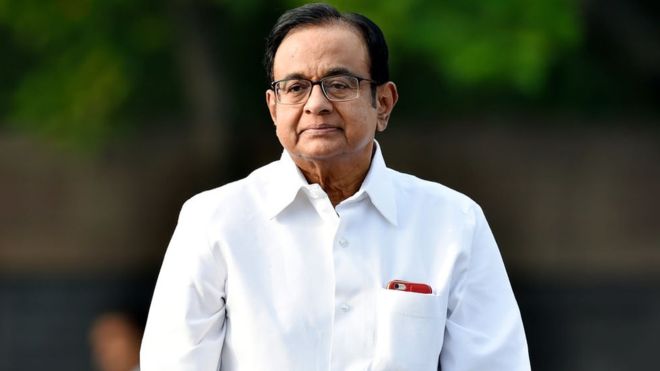New Delhi: The Enforcement Directorate Wednesday told the Supreme Court that specific information had been received from foreign banks which include inputs on former Finance Minister P Chidambaram’s properties abroad. These included house numbers and companies which owned them.
Solicitor General Tushar Mehta submitted before a bench headed by Justice R Banumathi: “As a result, we have issued Letters Rogatory in the matter… well crafted and layering of money laundering was adopted by the accused in this case.” The apex court has extended the protection from arrest of Chidambaram by ED for another day in the INX Media case.
The ED refused to share its investigation report with Chidambaram as the chargesheet in the case was yet to be filed and urged the court to look into the report filed in a sealed envelope to decide his anticipatory bail plea. Mehta revealed this information while addressing Chidambaram’s argument that the transaction happened before it was made an offence, which points at the retrospective applicability of Prevention of Money Laundering Act (PMLA) law.
“We have robust material to show money laundering,” argued the ED counsel. Mehta informed the court that the records in the case had been officially received and not manufactured or fabricated.
He insisted that it was the ED’s statutory right to arrest the accused. The ED Director had the right to arrest and many conditions are supposed to be met before an arrest is made. Mehta told the court that the information received from various banks across the world cannot be made public in the case.
He told the court that the statute provides that material should be handed over to a neutral adjudicatory authority to help in avoiding a probe agency to tamper with them. These were statutory checks and balances involved in the process.
Senior advocate Kapil Sibal, appearing for Chidambaram, said the accused should be confronted with the evidence investigating agencies proposed to bring on record to contest his bail.
Mehta refused to share the details of the case diary. Citing an example, he said the case diary may have the details of the informer. Therefore, it cannot be at disposal of the accused. Mehta insisted that the pattern of money laundering adopted in the case is a complex mesh of several layers.
Mehta also told the apex court that Chidambaram was trying to play the “victim card” and trying to prevent the ED from arresting him in the case. “We are not into a witch hunt. We have material to show that it is a serious case of money laundering,” Mehta told the Bench, which would continue to hear arguments in the case August 29.







































